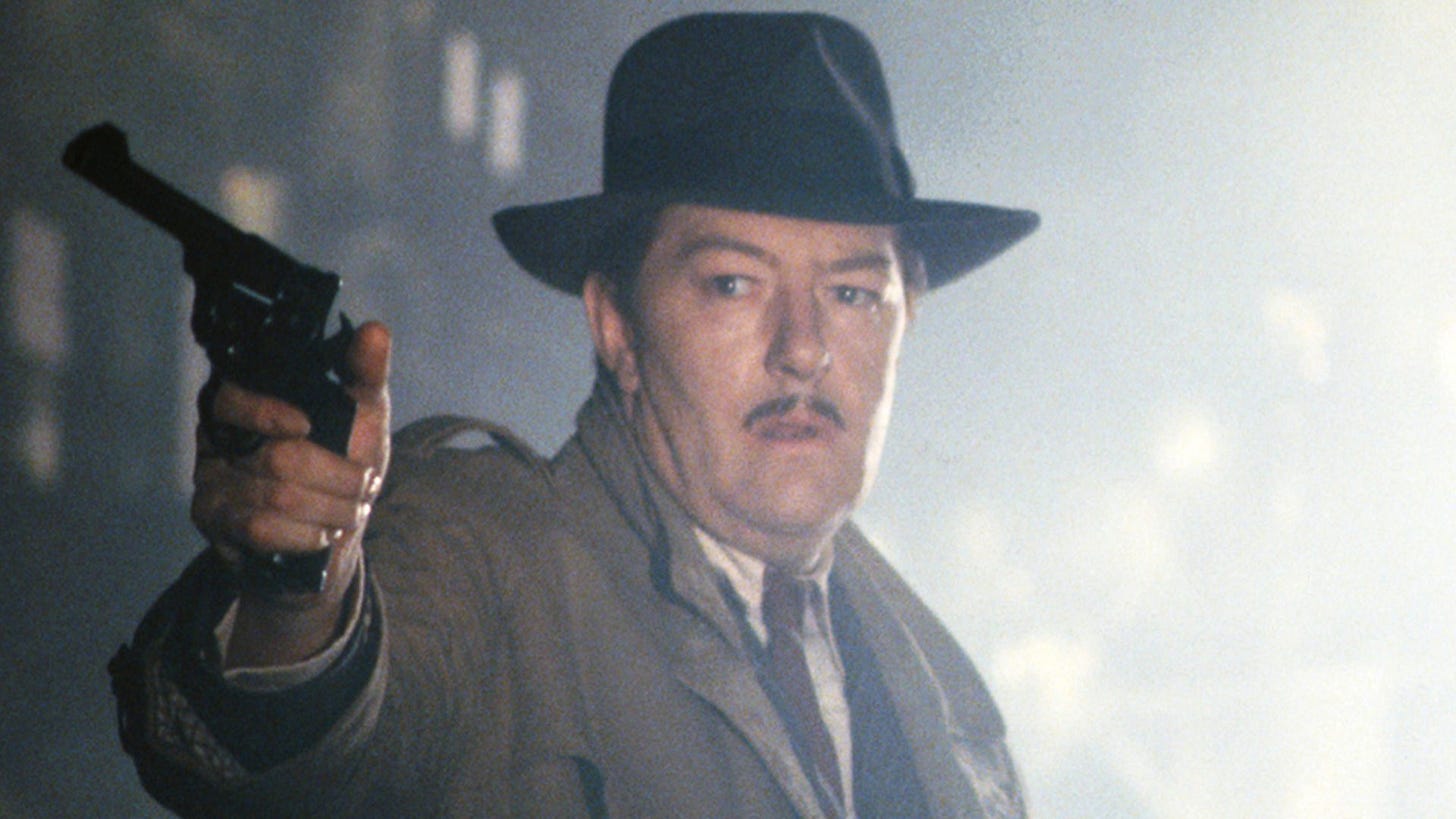The Singing Detective(s) - Under Review
Running the rule over the TV series and the big-screen adaptation.
The Singing Detective (1986)
Keith Gordon’s movie version of The Singing Detective wasn’t the worst ever TV-to-big-screen transfer (see below). However, the series’ epic running time alone - it spans almost seven hours - made a successful film adaptation a very hard ask.
But if time limitations were a tough obstacle to overcome, it was ultimately the complexities of Dennis Potter’s original story that made a movie version all but impossible. Ever determined to reinvent television drama, Potter - widely lauded for groundbreaking works like Son Of Man, Moonlight On The Highway and Pennies From Heaven - gamely set about intertwining not two but four central plot-strands.
At the heart of the enterprise is Philip J Marlowe (Michael Gambon), a pulp fiction writer afflicted with the same disease - psoriatic arthropathy - that crippled Potter for long periods of his life. Sent to the grimmest of hospitals, the condition and Marlowe’s determination to escape both it and his confines sees the writer retreat into The Singing Detective, a noir thriller in which he ‘plays’ the titular lead. Marlowe also retreats into memories of a fraught childhood, offsetting the nightmares with recollections of period songs. Memory and fantasy, however, are powerful forces, as our hero discovers when reminiscence and reality collide to create a fevered fourth storyline.
An incredible blend of sitcom, sex comedy, period piece, crime drama, psychological thriller and stage musical, The Singing Detective is Potter’s undisputed masterpiece. Directed by Jon Amiel - later to enjoy movie success with Somersby and Copycat - the series achieves greatness because it marries cleverness with the most massive of hearts. While casting the drama, the producers toyed with giving the role of Marlowe to the marvellous Scottish actor Nicol Williamson. Before the decision could be finalised, Amiel overruled it, claiming that great though Williamson would be, he wouldn’t be able to break the audience’s heart to the same extent as Michael Gambon.
If you’re only familiar with Gambon for his hammy turns in Toys and Clean Slate or his supporting performances in Open Range and The Insider, you only know half the story. One of the finest theatrical actors of the age, Gambon’s Marlowe is up there with TV’s greatest characters. Caked in disgusting body make-up and robbed of the use of his hands, it’s impossible not to empathise with the stricken author. Potter, though, gives us ever reason to dislike Marlowe - a racist egomaniac with a sexuality so dark, you’d need a torch to explore it. That Marlow still functions as the hero of the piece despite these strikes again him is a measure of Gambon’s complex, compassionate performance.
A highly autobiographical work, The Singing Detective also provides Potter with a platform to explore preoccupations such as his love of the English language and his loathing for political correctness. He further probes these and other matters through superb supporting characters such as Bill Paterson’s insidious shrink Dr Gibbon, Joanne Whalley’s astonishingly sexual Nurse Mills, and Patrick Malahide’s Mark Binney, the putative villain who pollutes Marlowe’s ever universe.
With its raft of great music and fantastic song-and-dance-numbers plus early turn from Naked star David Thewlis, The Singing Detective is the proof that, rather than being cinema’s poor cousin, television is a medium in its own right and, as such, has strengths all of its own. Of course, it’s easy to forget this when watching the latest reality series , but after seven hours of The Singing Detective, you’ll be as dazzled by what TV can deliver just as you’ll remain disappointed with what it usually doles out
Keep reading with a 7-day free trial
Subscribe to As Luck Would Have It to keep reading this post and get 7 days of free access to the full post archives.


